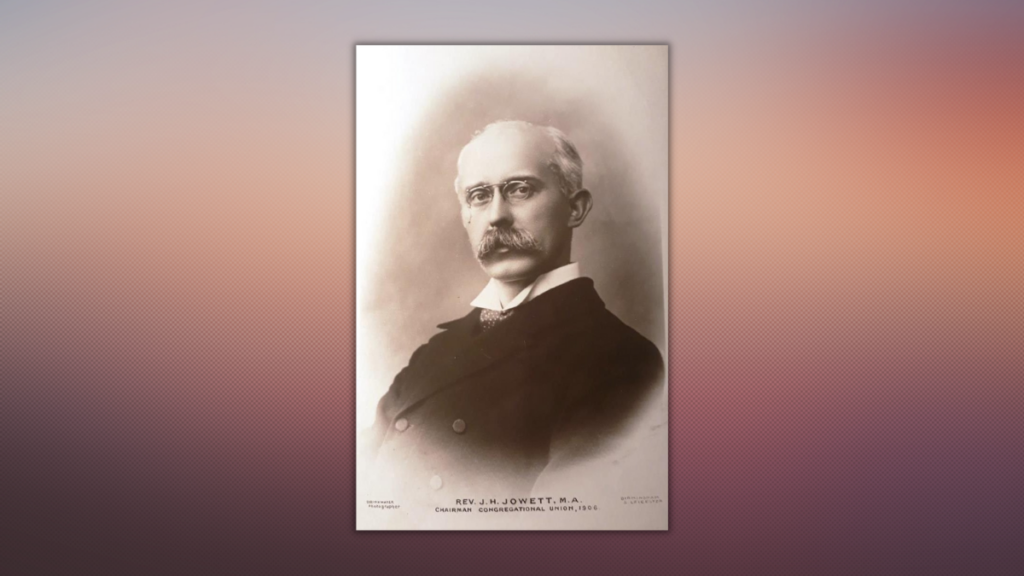By Jay Sanders
Lifeway Research
There’s a part of pastoral ministry that isn’t often spoken about in seminary classes. Pastors don’t usually mention it when they meet up at conventions or for coffee once a week. But that doesn’t make it any less real.
Anger will play a significant role in your ministry.
More specifically, the way you choose to deal with the people and situations that make you mad will have a tremendous impact.
Your control over difficult circumstances is limited. Your control over how you respond is not.
Pastoral ministry gives you the unique opportunity to be with a variety of people in both their happiest and most devastating moments.
You can see lives changed in such a way that no one other than Jesus can get credit for the transformation. You’ll baptize kids and, a decade or so later, perform their weddings. You’ll be strengthened by some of the most encouraging and uplifting people on the planet.
But that’s not all there is to ministry: There’ll be things that make you angry.
You’ll make decisions that won’t be supported. Some of the people you baptized will turn around to say mean things about you.
There’ll be rumors about you that have no basis in reality. Some of your dearest friends might even help to spread them. And there’ll be people who, regardless of how nice or faithful you are, just don’t like you.
Unchecked fury
If our fury toward the person who’s hurt us goes unchecked, it’ll define our ministry. A ministry defined by anger can’t simultaneously be defined by the holiness of God.
One has to give. But how? How can we keep heartache, backstabbing, gossip and unmet expectations from derailing us?
- We must be quick to forgive.
Forgiveness is the heart of the gospel we proclaim as Christians
(Matt. 18:21–35). To preach this foundational doctrine and yet not live it is peak hypocrisy.
Conversely, the gospel shines brightest when those who proclaim it live it as well. Forgiving those who’ve wronged you is a great way to underscore the forgiveness about which you preach.
- We must move toward the conflict.
I didn’t say we must look for the conflict, create the conflict and destroy the source of the conflict.
But when we know where the problem is, we must move toward it in love for reconciliation. If we’ve contributed to the problem in any way, we must repent.
- We must be honest about our anger.
Being honest about our sinful anger means we don’t deny its existence. We must live in a state of continual, hopeful self-examination (Col. 3:1–10).
When demons asked Jesus to let them stay in the country of the Gerasenes, just before He cast them out of a man (Mark 5:10), the implication is that the demons felt somewhat welcomed.
We must be careful that the same can’t be said of bitterness in our heart. If we don’t proactively seek to address our anger and forgive those at the center of it, we roll out the welcome mat at our heart’s door where bitterness is sure to accept the invitation, put his dirty shoes on the couch and eat up all of the food in the refrigerator.
So if you’d like your preaching to become more bullyish, your joy to become less obvious and the Spirit to become less evident, do nothing about your anger.
Before long, unresolved anger will bleed into other areas of your life and ministry where it’ll work as a fertilizer for other sins.
If you choose to crucify your sinful anger, growth will come.
Those who don’t like you might not ever end up being your best friends. They may even grow entrenched in their opposition to you.
But because you’re addressing your anger with a humble, prayerful and repentant spirit, you’ll be able to say along with Joseph who was all too familiar with difficult people, “You planned evil against me; God planned it for good” (Gen. 50:20).
EDITOR’S NOTE — Jay Sanders is the pastor of Towaliga Baptist Church in Jackson, Georgia.
‘Experiencing God’ request
Are you currently working through the “Experiencing God: Knowing and Doing the Will of God” study?
Maybe you worked through it earlier this year or in recent years, or even many years ago.
No matter the timing, we would love to share about your experience with “Experiencing God” in an upcoming issue.
- What motivated you to go through the study?
- What did God show you through the exercises?
- Which of the seven realities stands out to you the most?
- Are there specific points with which you connected personally?
- How are you different on the other side of the study?
- How would you describe the study to others?
- Would you encourage others to give it a try?
These questions are simply designed to spark thought. Please feel free to share any additional information or thoughts about the study.
Email us at news@tabmedia.group or write to: The Alabama Baptist, 3310 Independence Drive, Birmingham, AL 35209.
In addition to the lack of determination to stay married, there is also a significant lack of understanding between marriage partners. Therefore, divorce is relatively easy and actually preferred to the efforts it takes to avoid it. It is certainly true that the tendency in marriage is to isolate, separate and drift apart. Marriage cannot and will not grow if efforts to turn the tide are not addressed, adopted and/or adapted to fit each particular situation.
Morris Murray Jr.
Jasper, Ala.
“We’re all in this together from the little girl baking cupcakes to the rescue people,” said Tommy Reed, pastor of Fitzpatrick Baptist Church, Prestonsburg, Kentucky, of flood relief efforts in the state. “It’s awesome how people in the mountains have responded. Pray the Lord will send the rain somewhere else.”
When Jesus says I can do nothing on my own, He reminds me that each day, each second and each breath comes from Him. God guides our steps in every long moment of waiting and stepping into the unknown. We don’t have to put life on hold as we wait, and whatever your season looks like, it can be fruitful if you abide in Christ as the source of growth and hope.
Megan Harris
the-scroll.com
“When we all got together, we all just looked at each other, knowing this is really hard. This is really, really hard,” said Marybeth Slabbert, who reflected on gathering with other church planter wives in Wyoming. “That’s the reality of what it’s like to pick up your cross. It’s not sad; it’s joyful.”
“I started drawing before I did anything else, but I’m mostly a pastor. I want people to know, ‘You don’t have a comedian as your pastor. You’ve got a God-called, heaven-anointed man of God as your spiritual leader. Along the way, as a secondary ministry, I will be drawing people,’” said Joe McKeever, longtime pastor, missions leader and storyteller.
“Before prayer changes others, it first changes us.” Billy Graham, late evangelist
The call to faithfulness, not success
Isaiah 6 is the awe-inspiring, epic scene of Isaiah’s commissioning as a prophet. …
I think if I had been Isaiah, I might have thought, “Wow! God has pulled out all the stops to call me. He must have something AMAZING for me to do! I’ll bet I’m gonna fill stadiums like Billy Graham. I’ll bet God wants me to be the catalyst for the next great awakening! Thousands of people — no, TENS of thousands! — are going to repent and turn to God when they hear me preach!”
Instead, God commissions Isaiah to a career of ineffectiveness. Over the next 40 years, spanning the reigns of four different kings (see Isa. 1:1), Isaiah will preach to a people that will be ever hearing but never understanding. Ever looking and not perceiving. …
Isaiah gives me the reminder I so need. God does not call any of us to success and effectiveness. He calls us to obedience and faithfulness. It is significant that the three prophets with the longest ministries (Isaiah, Jeremiah and Ezekiel) also had the most frustrating ministries.
But it is also significant that the more frustrating the call was, the more clear it was. Isaiah had his vision in the temple. Jeremiah had the assurance that God had called him from the time he was in his mother’s womb (Jer. 1:5). Ezekiel had the vision of God’s glory on the bank of the Chebar canal (Ezek. 1).
To all my brothers and sisters in ministry, hear this: God doesn’t call us because we are awesome. We follow the calling because God is awesome.
Pastor James Jackson
Glynwood Baptist Church, Prattville
jamesjackson.blog
Day 191
@nathanafinn
The @SBCCP exists to fund the cooperative missions endeavors of Southern Baptist churches. But we must remember the currency of the Cooperative Program is trust, not dollars. The greater the degree of trust, the more likely churches will give generously and even sacrificially.
@TAndrewBrown
The whole framework of Scripture rests upon two realities: incarnation and resurrection.
Through incarnation, God brings himself close to man. Through resurrection, man is brought close to God.
@CatherineRenfro
If God puts someone on your mind today, it’s not by accident or coincidence.
Pray for them, text them, call them or write them a note.
And Jesus will encourage them as only He can.
@brocraigc
“A frequent hearer is likely to become a fervent believer.”
—Spurgeon
@DustinBenge
7 prayers for this week:
“Teach me Your statutes.”
“Fix my eyes on Your ways.”
“Teach me good judgment.”
“Give me understanding.”
“Put false ways far from me.”
“Incline my heart to You.”
“Enlarge my heart.”
(Psalm119)
@richardblackaby
Be sure of this: God will not grant you a difficult assignment without also providing all the resources necessary to succeed.
@bobgoff
I keep putting things in the microwave, and God keeps putting them back in the crockpot. Whatever is distracting you today, give it a little more time.
@MichaelCatt
You can talk about the past. You can build on the past. You can learn from the past. But you must not worship the past.
@DanielRitchie
The weight of comparison is more than we can withstand, yet the gift of grace lifts that burden by the saving work of Jesus.
@drggrobinson
My mantra: We communicate what we cherish. We will never communicate the gospel broadly until we cherish the gospel deeply.
@shane_pruitt78
Our opinions don’t change the Bible; the Bible should change our opinions.





Share with others: